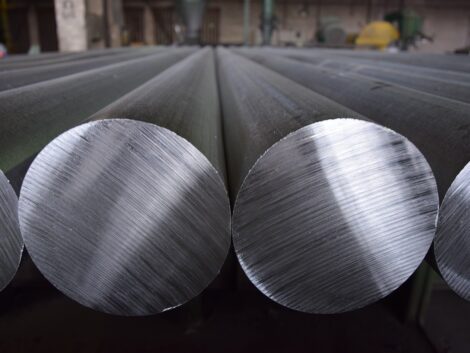Aluminum Association president testifies before US International Trade Commission hearing
Aluminum Association President and CEO, Charles Johnson, will testify before the U.S. International Trade Commission (USITC) this afternoon as part of its fact-finding investigation to assess the greenhouse gas (GHG) emissions intensity of U.S.-produced aluminium and steel.
As part of the investigation, the Commission plans to develop and commission a first-of-its-kind survey of domestic production facilities to catalog and report relevant emissions and other data supporting their emissions intensity assessment .
The investigation is in response to a request by the office of the U.S. Trade Representative (USTR).
“It is no exaggeration to say that there is no green energy transition without materials like aluminium,” Johnson said in his testimony.
“This growing shift has led to significant domestic investment – with nearly $10 billion committed or spent to build and expand U.S. aluminium plants and operations over the past decade. This includes the building of two brand-new, state-of-the-art aluminium rolling and recycling mills currently underway.”
Johnson called for three key actions by the Commission as it continues its investigation:
- Ensure that the approach laid out by the USITC for collecting facility, process and product-level data most effectively provides the information that the USTR seeks.
- Limit the burden on impacted facilities by developing a survey that only requests specifically relevant and material GHG emissions information.
- Fully incorporate the various ways that aluminium flows through processing systems into the USITC methodology to ensure their accurate understanding of reported industry data.
Over the past 30 years, the industry has cut the carbon impact of North American aluminium production in half during a time of increased demand for the metal. Technological advancements including manufacturing process controls; efficiency improvements due to economies of scale; the phasing out of old smelting technologies; and the replacement of coal-fired for renewable electricity in smelting have all contributed to this positive trend. Further, the industry is working every day to reduce its impact.
Already, aluminium produced in North America is some of the cleanest aluminum in the world. Making aluminium in China or the Middle East, which rely largely on coal and natural gas-based electricity, can be two-to-three times as carbon intensive as making similar products in the United States and Canada.
Johnson concludes his testimony saying: “We share your goal to move toward ever more sustainable aluminium production. We hope and believe industry and government can work constructively together toward this shared purpose.”
The Aluminum Association will submit full written comments on the survey and proposed methodology to the USITC in advance of the January 5, 2024 deadline. To read the full prepared testimony, click here.








